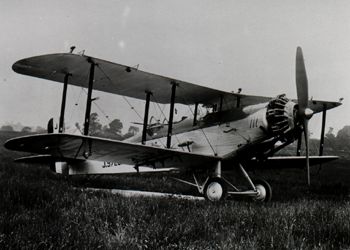Aircraft Data Sheet: Wapiti (1927) Wapiti; A large North American Antelope

| First flight: | 7th March 1927 |
| Span: | 14.15m/46ft 5ins |
| Length: | 9.65m/31ft 8ins |
| Max weight: | 2,449kg/5,400lb |
| Max level speed: | 122knots/225kph |
| Power plant: | One 480shp/358kW Bristol Jupiter VlllF.(Wapiti llA) One 550shp/410kW Armstrong Siddeley Panther (Wapiti lB, South Africa) One 490shp/365kW Armstrong Siddeley Jaguar Vl (Wapiti lll, South Africa) Numerous other power plants were fitted experimentally |
| Total built: | 558, plus 27 licence built in South Africa |
The Wapiti holds a special place in Westland's history in that, not only did it achieve quantity production in significant numbers, but also because Wapiti sales and production took place at a time when most areas of British industry were suffering the effect of the recession. There can be little doubt that without the Wapiti production the company would probably been unable to continue functioning as an aircraft manufacturer.
The Wapiti was produced in response to Air Ministry Specification 26/27 calling for a DH-9A replacement, which also specified a great deal of commonality. Westland as a DH-9A design authority was well placed to respond to this. The Wapiti was selected against seven other contenders to become the mainstay of as a general-purpose aircraft for the RAF for the next ten years, there were even a few in use at the outset of World War 2.
The aircraft underwent continuous modification during its long service life, mostly incorporating a range of engines and more extensive use of metal components, there were eight distinctive versions of the aircraft flown before production ceased in 1932.